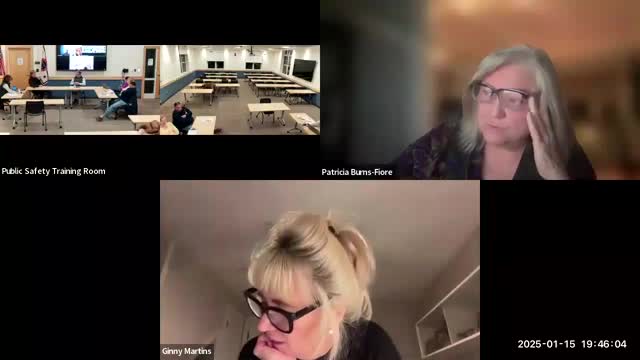Tricentennial fundraising pushes brick sales; Southborough Community Fund offers $10,000 for donor management software and event support
Get AI-powered insights, summaries, and transcripts
Subscribe
Summary
Committee members reported brick sales and a proposed donation from the Southborough Community Fund to buy a donor management system (Bloomerang) and support events; the group introduced a $250 bulk price for organizations that buy 10 bricks.
The Southborough tricentennial fundraising team reported progress on a brick‑sale campaign and described a potential $10,000 sponsorship to pay for a donor management system and related event support.
Committee volunteers reported that the campaign has sold 62 full bricks and 22 mini bricks, raising $18,595 so far, and that another 10 bricks have been sold in a bulk order at a discounted rate. “So today, this is so amazing. We have sold 62 bricks and 22 mini bridal, totaling $18,595,” a fundraising volunteer reported to the committee. The additional bulk order of 10 bricks at the discounted $250 rate was described as bringing the campaign total to $21,095. The committee’s stated goal is to sell at least 300 bricks.
The group also announced that a representative of the Southborough Community Fund proposed a multi‑year donation to cover a donor management system (DMS) subscription and provide additional event support. The community fund has offered $10,000 across three years — $4,000 in year one, then $3,000 in years two and three — to cover the subscription and related activities if the committee accepts the fund’s conditions and completes internal approvals. Fundraisers said they expect a Bloomerang subscription would cost roughly $5,000 for the first year and that remaining funds could support events.
The committee has introduced a group sales incentive: organizations that purchase at least 10 bricks will receive a $50 per‑brick discount (bringing a bulk price to $250 per brick), and the committee plans to credit earlier individual purchasers who later become part of a qualifying group for the difference minus payment processing fees. Fundraising volunteers asked committee members to help recruit institutional buyers — town boards, civic groups, school groups and scouts were all listed as target partners.
Committee members discussed logistics for accepting donations (checks preferred to avoid processing fees), using Venmo and PayPal at tabling events, and the need for a coordinator to manage group sales outreach and follow‑up. Volunteers also raised a small administrative question about tax letters and timing: if someone received a donation letter for 2024 and later becomes part of a 2025 group sale, the committee said they would handle such requests on a case‑by‑case basis and that the donor should consult tax advisors as needed.
Ending: Fundraisers said group sales and a proposed community fund sponsorship could significantly speed progress toward the 300‑brick goal, but they asked the committee to identify a coordinator to handle organizational outreach and to finalize the community fund grant paperwork before the donation is accepted.
